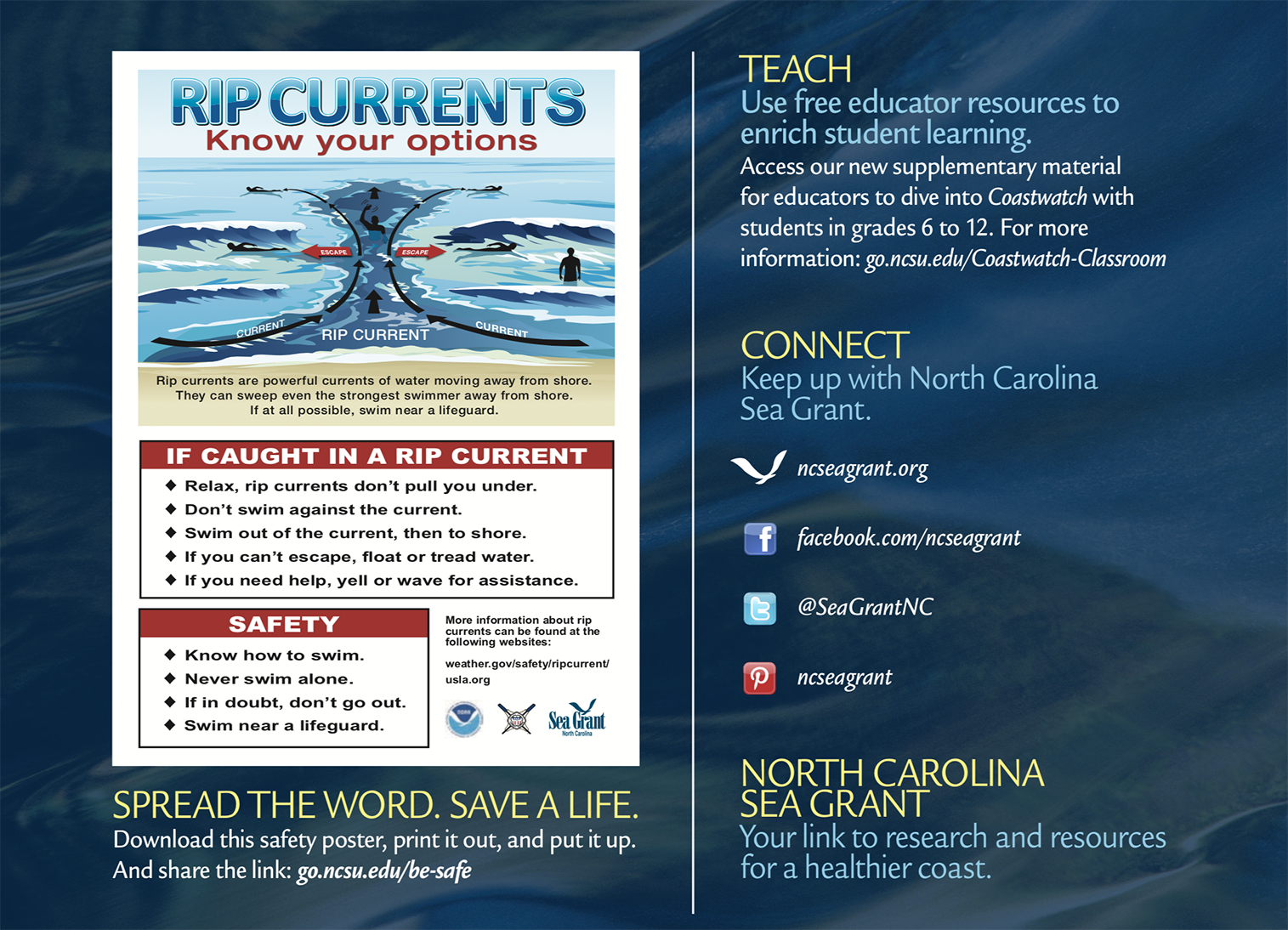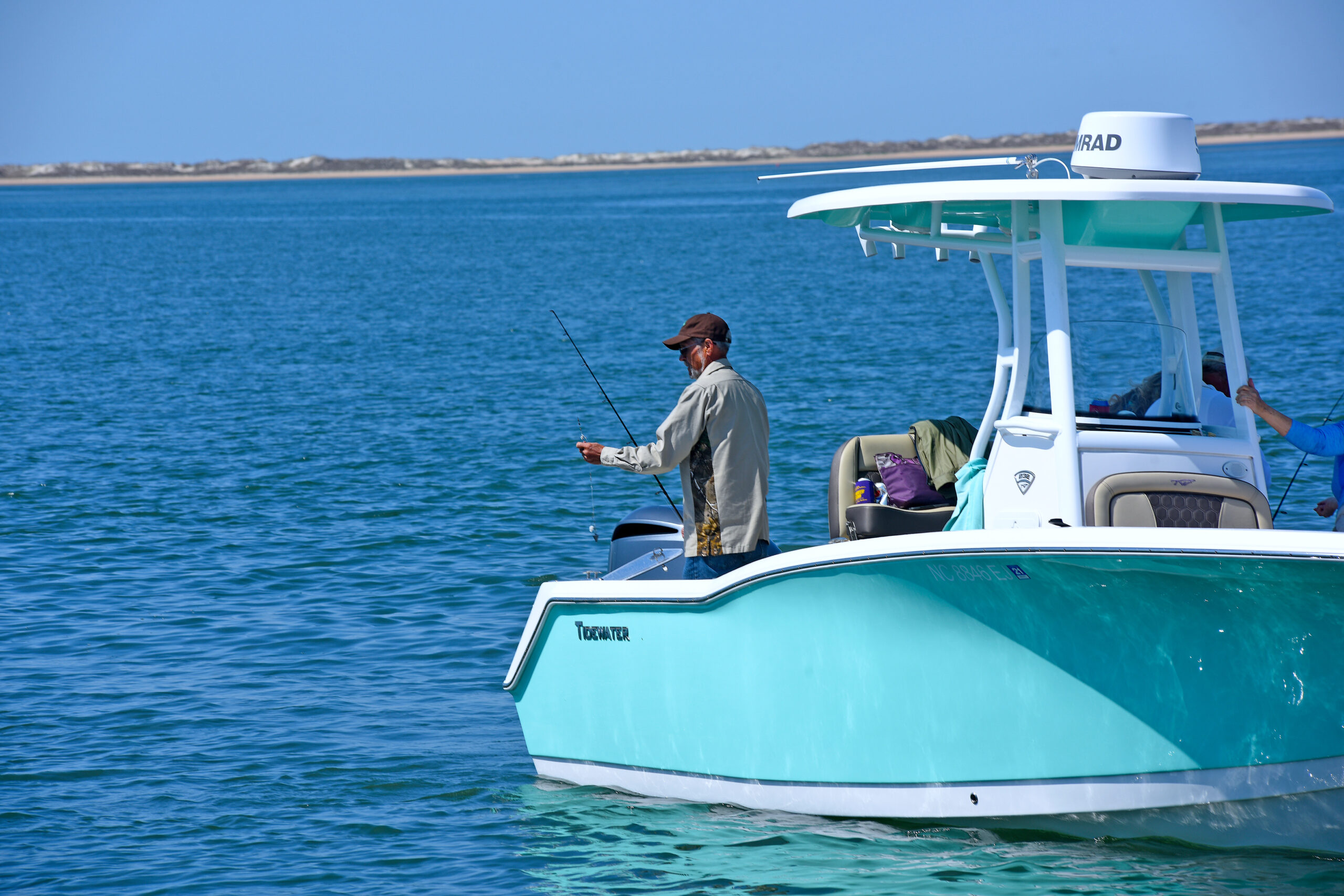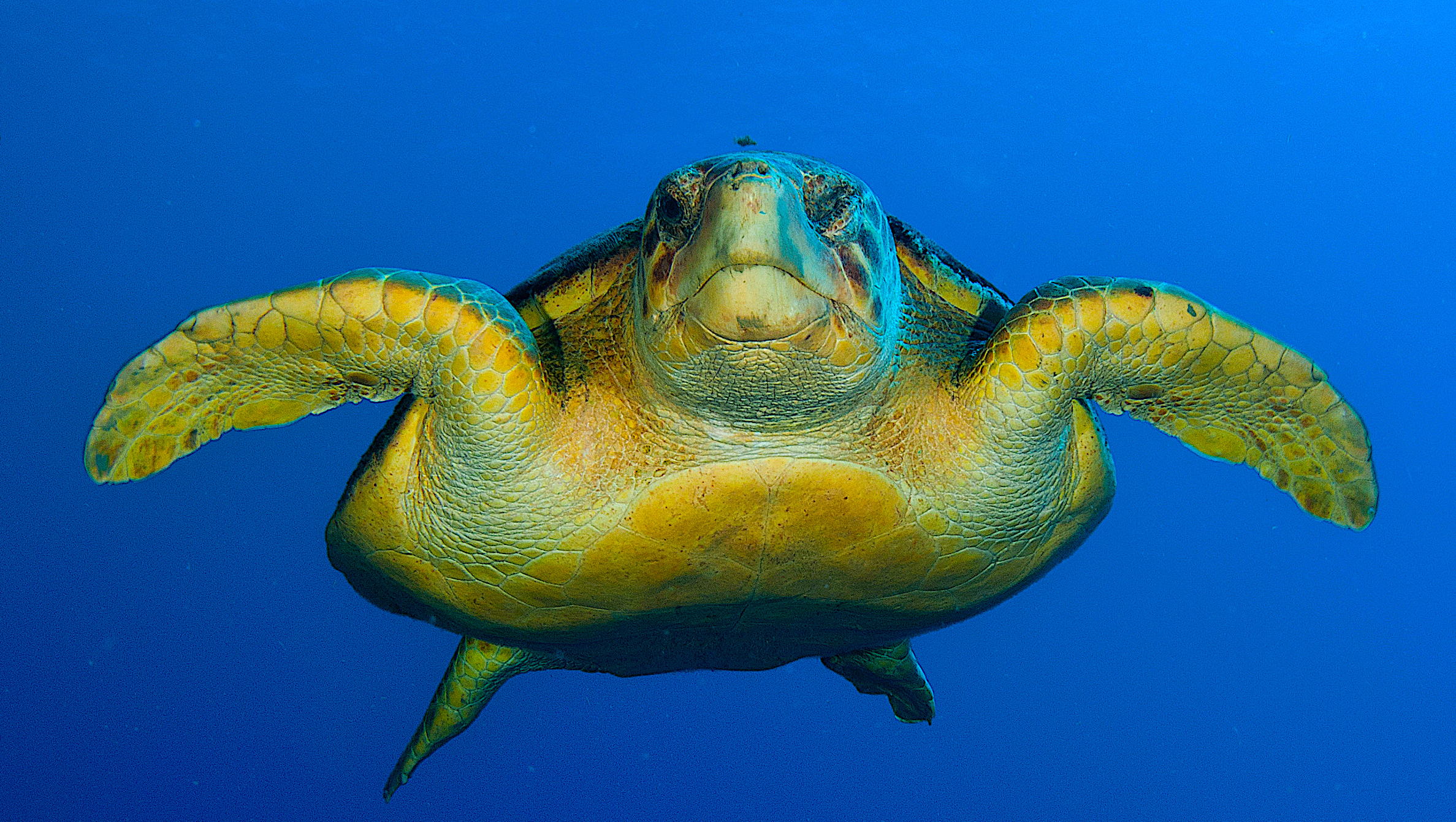Letter from the Executive Director
Summer 2021: New Plans and Programs in a New Era
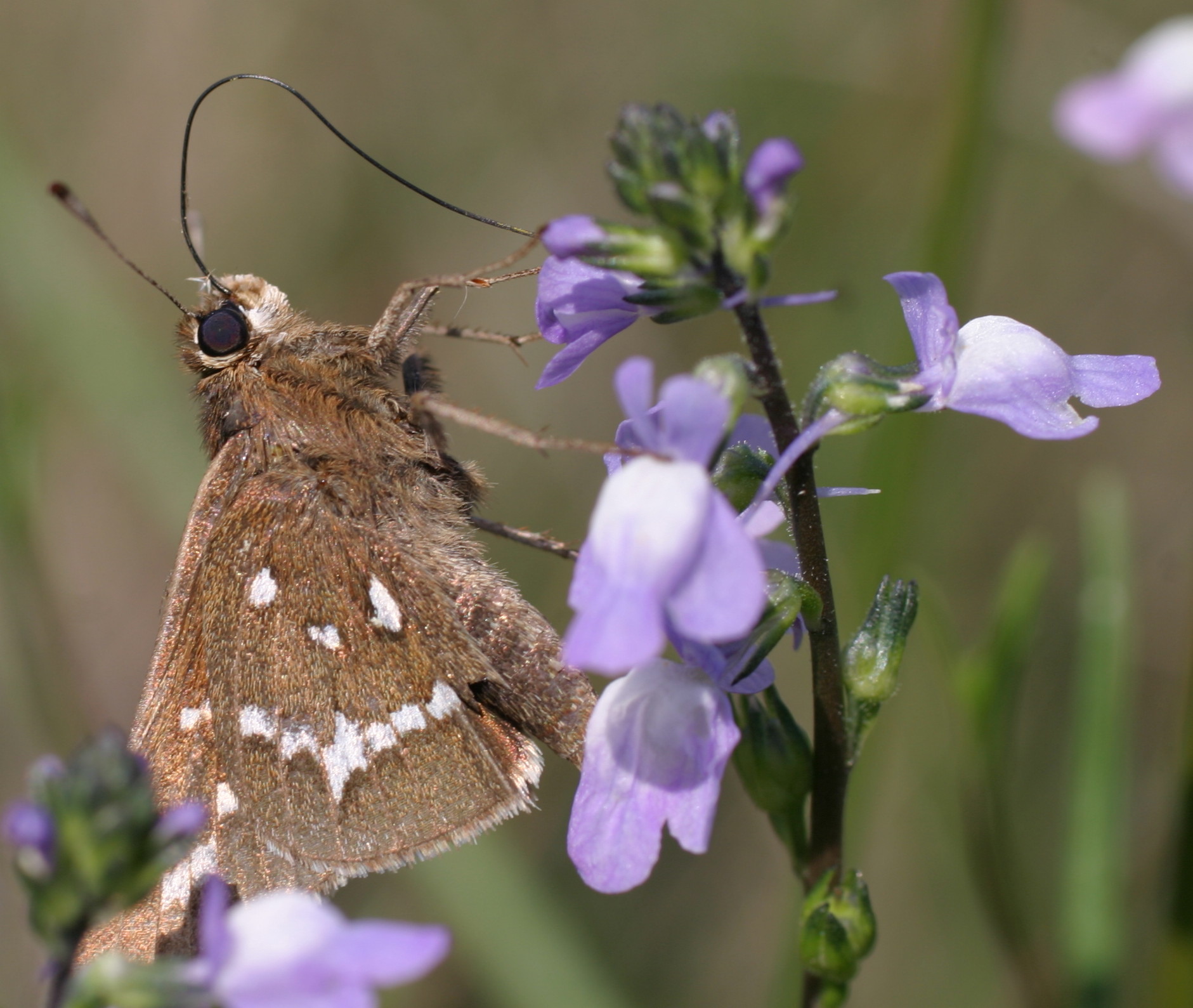
We certainly are looking forward to summer fun outside with family and friends.
Our team also will be reinvigorating North Carolina Sea Grant programming with partners across the state after more than a year of pandemic restrictions. We have missed in-person interactions — and are eager, with ongoing safety measures, to expand our outreach and research with coastal communities, stakeholders, and academic institutions. All this, while keeping an eye on the predicted active Atlantic hurricane season.
It is a busy time, yet one that brings energy and enthusiasm to support NC Sea Grant’s mission to bring science-based information with real-world solutions, enhancing the sustainable use and conservation of ocean and coastal resources to benefit communities, the economy, and the environment.
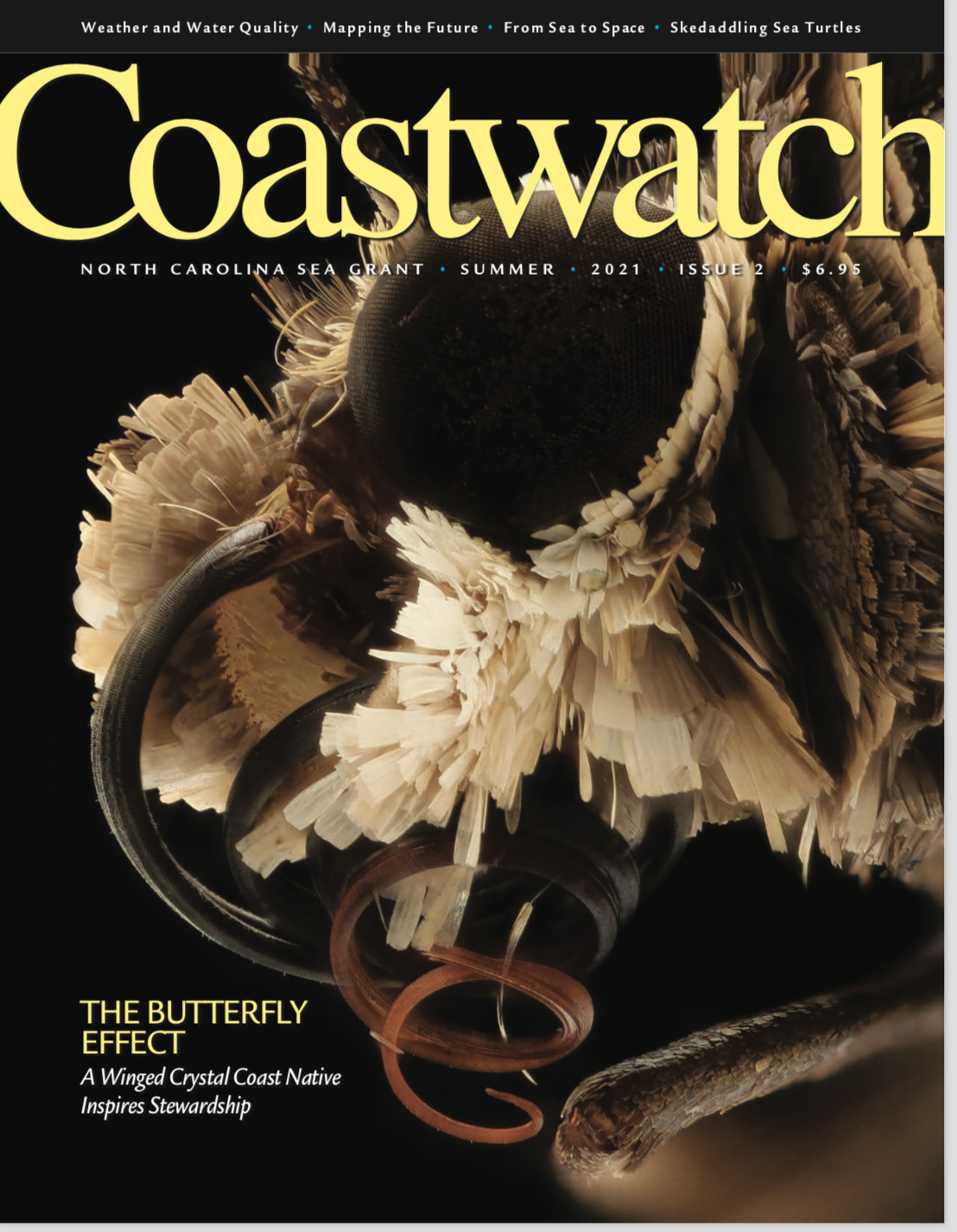
I commend all of our team members in Raleigh, Wilmington, Morehead City, and Manteo. They have epitomized resilience and reflected a generosity of spirit, along with a sense of optimism and commitment to supporting their families and communities, while also bringing excellence to their work. I am regularly amazed at how adaptive and creative our team has been, along with many partners and collaborators, in delivering virtual programs and seeking on-the-ground solutions to address coastal and watershed challenges.
It’s a very welcome sea change to renew our own programming, and to know our funded researchers are going back out in the field — and the waters. This summer, for instance, will see the ramping up of new projects funded through Community Collaborative Research Grants in partnership with the Kenan Institute for Engineering, Technology, and Science and the NC Water Resources Research Institute. In addition, our second group of NC STEM Policy Fellows will be starting assignments. And, we are busy reviewing proposals for our next round of core research.
We try to embed our commitment to diversity, equity, inclusion, and environmental justice across all our projects, and we also lead particular projects to better understand and respond to conditions in communities that disproportionately bear burdens. Starting this fall, we’ll investigate the effects of COVID-19 on underserved communities in our state’s coastal counties. The project also will include a special focus on health disparities in coastal North Carolina.
In this issue, you’ll find more prime examples that represent the focus areas of our work: healthy ecosystems, resilient communities, sustainable fisheries and aquaculture, and environmental literacy.
“The Butterfly Effect” is the award-winning Julie Leibach’s lively cover story about the crystal skipper — a conservation legacy for our program and a species worth viewing when you visit N.C.’s central coastal region.
In “Above and Below,” you can read about guest author Alex K. Manda’s groundbreaking work at Pine Knoll Shores and the Buckridge Coastal Reserve. Manda, a geological scientist at East Carolina University, has conducted a wide array of research on that critical resource we often take for granted on the East Coast: water.
“Mapping the Future” provides a preview of Georgina Sanchez’s innovative flood mapping project at NC State’s Center for Geospatial Analytics, a project she is piloting with student Elyssa Collins and other scientists at NC State and the U.S. Geological Survey. Sanchez, Collins, and their colleagues are modeling the effects of different climate change scenarios on both coastal and inland flooding, and, in turn, they will provide a means for developing badly needed updates to flood maps coast to coast.
There’s lots more in this issue, too. Take it with you to the beach — and check out the rip currents safety information on the back cover before you hit the waves.
Please reach out to me at snwhite3@ncsu.edu to share your favorite N. C. beach memories. Also, please share your suggestions for how North Carolina Sea Grant can continue to strive towards more inclusive work within our coastal communities.
— Susan White, Executive Director, North Carolina Sea Grant
- Categories:
